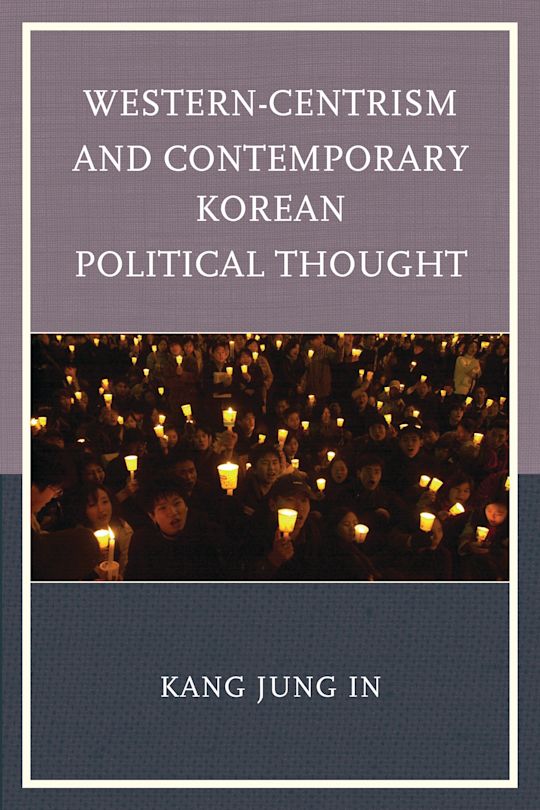- Home
- ACADEMIC
- Politics & International Relations
- Introduction to International Relations
- Western-Centrism and Contemporary Korean Political Thought
Western-Centrism and Contemporary Korean Political Thought
This product is usually dispatched within 1 week
- Delivery and returns info
-
Free CA delivery on orders $40 or over
You must sign in to add this item to your wishlist. Please sign in or create an account
Description
This book is an outgrowth of critical examination of Western political theory embedded in Western-centrism and the tumultuous ideational processes by which contemporary Korean political theory and reality have intensely interacted (both in convergent and divergent ways) with it. To conduct such examination the book addresses complex and variegated questions regarding Western-centrism: What is Western-centrism? How is Western-centrism to be compared and contrasted with other forms of centrism such as Sinocentrism, capitalism (bourgeois-centrism), patriarchy (male-centrism), and racism (white-centrism)? How has Western-centrism evolved in world history and in the history of Western political thought? How has Western-centrism shaped the evolution of contemporary Korean political thought? What kinds of ill effects has Western-centrism brought about in Korean society and academia? And, ultimately, how can Western-centrism be overcome?
Table of Contents
Notes on Names and Asian Characters
Introduction: From Western-centrism to Post-western-centrism
Part I: Defining Western-centrism
Chapter 1. Understanding Western-centrism
Chapter 2. The Historical Evolution of Western-centrism
Chapter 3. Western-centrism and Sinocentrism
Part II: Western-centrism in Western Political Thought Chapter 4The Origin and Evolution of Western-centrism in the History of Western Political Thought
Chapter 5. Western-centrism in Locke’s Theory of Property
Chapter 6. Western-centrism in Samuel P. Huntington’s Theory of Democratic Transition
Part III: Contemporary Korean Political Thought
Chapter 7. Pristine vs. Secondary Modernization
Chapter 8. The Ideological Status of Korean Conservatism
Chapter 9. The Democratization of Korea or the Korean-ization of Democracy
Part IV:Beyond the Shadow of Western-centrism
Chapter 10. The Negative Impact of Western-centrism in Korean Political Studies
Chapter 11. Discursive Strategies for Overcoming Western-centrism
Chapter 12. Beyond the Shadow of Western-centrism
Bibliography
Product details
| Published | Aug 20 2015 |
|---|---|
| Format | Hardback |
| Edition | 1st |
| Extent | 354 |
| ISBN | 9780739180983 |
| Imprint | Lexington Books |
| Illustrations | 1 Table |
| Dimensions | 235 x 162 mm |
| Publisher | Bloomsbury Publishing |
About the contributors
Reviews
-
Michel Foucault famously stated that the modern West, while priding itself of its
"democracy", has failed to abandon autocracy by refusing to "cut off the king's head".
This fact is patently evident in the global arena in the continued Western assertion of
planetary hegemony and domination. In his book, Kang Jung In valiantly wrestles with
this conundrum from a "subaltern" Korean perspective, placing his hope in the emergence
of a global civil society marked by "polycentric multiculturalism". Without equating a stubborn
local retreat, polycentrism in his view requires a combination of global openness and cultural
resistance, more specifically a "modernization of tradition" involving "learning the new by
reviewing the old". Powerfully argued, the book is a vade mecum for anyone seeking a
transit from Western-centrism into a more equitable global interaction among countries and
civilizations.Fred Dallmayr, University of Notre Dame
-
Kang Jung In's book is a courageous and tenacious attempt to measure the cost to modern Korean understandings of politics inflicted by the western provenance of most of the central categories through which its citizens now speak and think about the forms political life assumes in Korea today. It draws on his experience of being taught by Hanna Pitkin to assess the prospects for re-centering their understanding in Korea itself
John Dunn, Fellow of King's College & Emeritus Professor of Political Theory, University of Cambridge



































